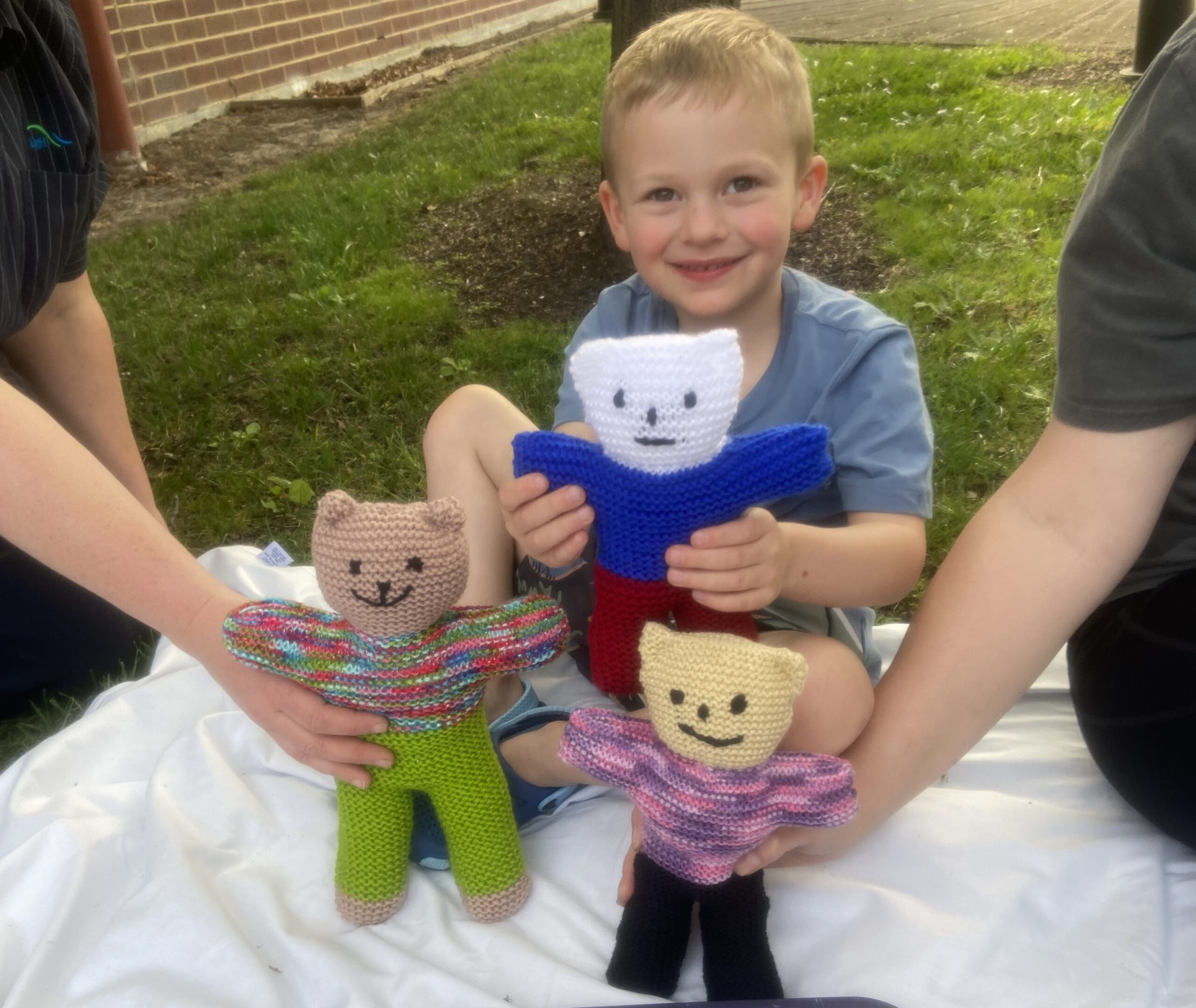Playful approach to kid’s food bears fruit

We probably all went through a stage where we refused to eat some of the food our parents put in front of us.
For some children however, it’s more than just ‘I don’t like broccoli!’ It’s serious food refusal that impacts their health and emotional development and can cause disruption in the family as parents become frustrated with the child’s choices.
“We work with kids to encourage them to explore foods. We actually want them to play with their food, which used to be something we’d tell kids not to do. By exploring their food, kids can come to see it differently, gain some confidence in it and then branch out to learn about other foods,” Manager of Speech Pathology at Latrobe Regional Health, Fiona Derham said
That exploration can involve presenting familiar food in a different way, allowing the child to consume their favourite food but with a sauce, a gravy, crumbed, in batter and then adding less favoured food, in smaller portions on the side.
“Eating is a journey for a child that involves all of their senses. First, they see it, then they might touch it, smell it. They can squash it, maybe it makes a noise and finally they taste it,” Fiona said.
You might think that eating is a pretty basic and intuitive process. However, Fiona says there are more than 25 steps to eating, that go from being in the same space as the food to actually swallowing.
Not surprising then that with all that processing going on, Fiona and her colleagues suggest reducing external stimulus and allowing the child to focus on eating and a positive mealtime experience.
“Getting the TVs and other screens out of the picture is a big benefit to allowing the child to focus on the meal. Sitting at a table is another feature which for many people has become lost in modern life. The long-term goal is for kids to feel good about food and eat a variety of foods based on their hunger and fullness cues. Get rid of the distractions, make the meal time fun and allow the child to explore the food as they work to get their tummies full.”
A lot of the work of the Speech Pathology team is done in a group setting.
“Children learn by seeing what others are doing, they observe what other kids are up to, they see how the adults are behaving and work out what to do from those cues. So, by encouraging them to explore their food and seeing how others are doing that exploring, helps them take their confidence around food to the next level,” Fiona said.
This idea of progression and development of confidence feeds into some of the language used with kids who refuse to eat a particular food.
“Rather than demanding or insisting that the child eats something, we put it in terms of not being ready to eat that food just yet. Like an explorer, you take your time and explore things when you feel confident to do so. The same goes with a child exploring a new food. They have the same questions: is this safe, how do I feel around this food, do I feel confident to take it on today?
“When we as parents get anxious or angry because our child isn’t eating something, the child will just close down, their adrenaline will kick in, their appetite will be suppressed and they’ll absolutely refuse to eat. So, it’s a slow process,” Fiona said.
The Speech Pathology team recently held a Teddy Bear’s Picnic for a small group of children.
“It was a beautiful day, so we went outside and explored a variety of foods. The kids made a teddy bear face and a teddy bear’s car with the different foods presented and played around with what was on their plates. The kids responded really well, enjoyed the playfulness of it and, most importantly ate foods, some they were familiar with and others that were new for them,” Fiona said.
So, the take home for frustrated parents?
“Allow meal time to be fun! Encourage your kids to play with it a bit, roll it around, see what it looks like when sliced up. Can they arrange those carrots so it looks like a tree? A house? It’ll reduce your stress levels and they’ll get used to the idea that, maybe, just maybe carrots and broccoli are ok. And when they’re ready and able, they’ll actually try some of them!” Fiona said.






